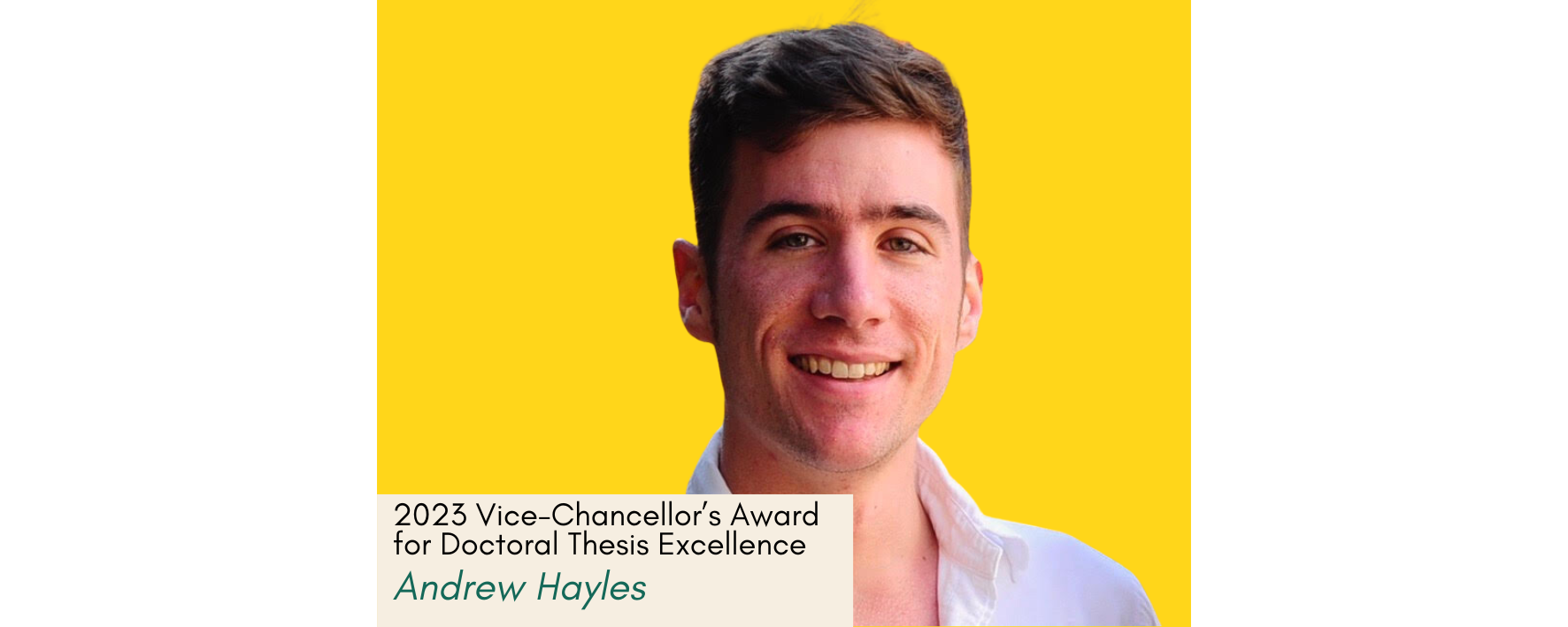
Andrew Hayles is from the College of Medicine and Public Health and is one of the 12 winners of the Vice-Chancellor’s Award for Doctoral Thesis Excellence for 2023. Andrew was supervised by Prof. Krasimir Vasilev and Dr. Vi Khanh Truong.
Andrew’s thesis, “Hydrothermally Etched Titanium for the Mitigation of Implant Associated Infection” explored modifying the surface of titanium to create spiked nanostructures that kill bacteria on contact, for orthopaedic and periodontal implant applications.
We invited Andrew to share insights into the PhD journey and what winning this award means.
![]()
Tell us about your research
I observed how different clinically relevant pathogenic microorganisms respond to nanostructured materials. The surface modification I investigated consists of sharp, pointed nanostructures that pierce and deform bacteria on contact – think about a water balloon on a bed of nails. I had the pleasure of visually observing this effect with fluorescence microscopy and scanning electron microscopy, under various conditions. I also got to measure changes in gene expression for important virulence factors.
![]()
What was the topic of your PhD and why is it important to you?
The topic of my PhD was focused on investigating the interactions between microbial pathogens and biomaterials containing mechano-bactericidal nanostructures. This topic was important to me because I love to learn about how microorganisms interact with their environment, and the topic allowed me to feed that curiosity in the context of a clinically important issue.
What does winning this award mean to you?
Winning the Vice-Chancellor’s PhD Thesis Excellence award means a lot to me because it serves as a reminder that all the hard work and late nights were worth it, and that my work has been recognized. Most importantly, the award will be a big boost to my academic track record, helping me to secure funding for my research.
![]()
Why did you choose to commence a PhD?
I was first inspired to pursue a career in science when I read Carl Sagan’s ‘The Demon Haunted World’, which completely changed my perspective about my place in the universe. I soon found a keen interest in microbiology and decided to undertake a bachelor’s degree in biomedical science, majoring in microbiology. Following my undergrad, I stumbled into a research assistant role within an industry-based project to work on anti-infective titanium-based biomaterials. In this role I developed my research skills and was encouraged by my supervisor, Prof. Krasimir Vasilev, to enrol as a Master’s student. A while later I managed to upgrade my enrolment to a PhD.
What has been one of the hardest parts of the journey?
The hardest part has been the late nights, made necessary by trying to juggle parenthood with research!
What’s a highlight of your student life at Flinders?
The culture at Flinders has been one of the greatest highlights. I have made many friends here, and it’s always a pleasure to catch up with them over a coffee or a beer at the Tavern.
What advice would you give to current or prospective PhD students?
Find a topic that genuinely interests and excites you, and then it won’t feel like a chore to undertake the project.
Where are you now?
I am currently working as a postdoctoral research associate in the Biomedical Nanoengineering Laboratory, under Prof. Krasimir Vasilev.


